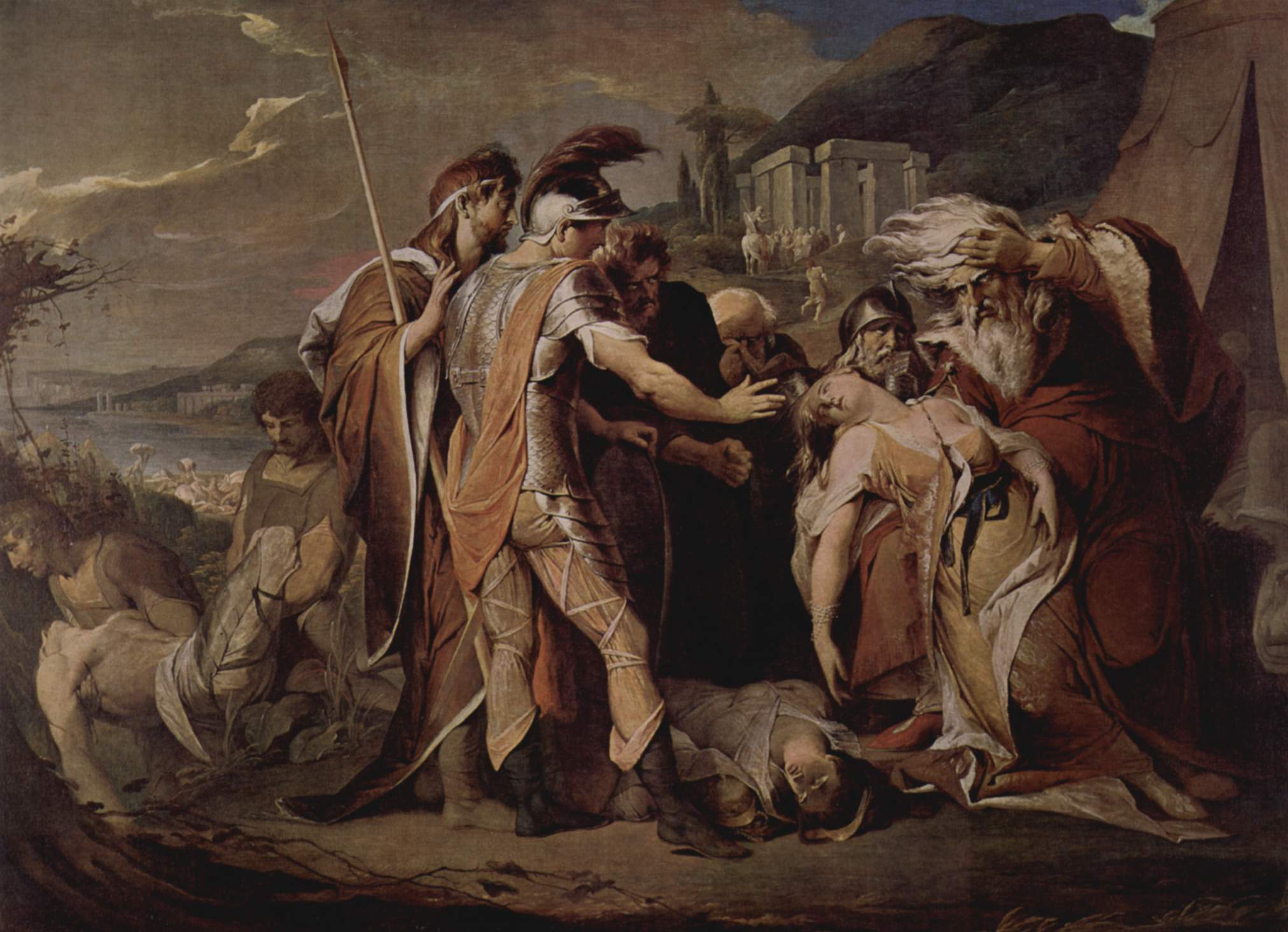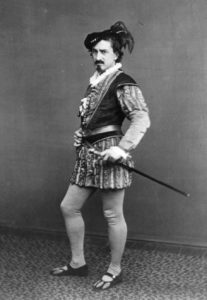It’s not uncommon for Shakespeare’s characters to die offstage, no matter how significant the character is. Unfortunately, this can make it difficult to understand how that character died. There’s a world of difference between seeing someone drink poison and someone running on stage to announce, “She’s dead, she drank poison!”
So it is with King Lear‘s Cordelia. Her death, and the way Shakespeare chooses to present it, is easily one of the most tragic scenes ever put on stage.
Edmund has captured Lear and Cordelia, but Lear doesn’t even seem to mind because he’s so happy to be with the daughter that he thought had left him forever. As they are taken away to prison, he says:
Lear. No, no, no, no! Come, let’s away to prison.
We two alone will sing like birds i’ th’ cage.
When thou dost ask me blessing, I’ll kneel down
And ask of thee forgiveness. So we’ll live,
And pray, and sing, and tell old tales, and laugh
At gilded butterflies, and hear poor rogues
Talk of court news; and we’ll talk with them too-
Who loses and who wins; who’s in, who’s out-
And take upon ‘s the mystery of things,
As if we were God’s spies; and we’ll wear out,
In a wall’d prison, packs and sects of great ones
That ebb and flow by th’ moon.
Edmund is challenged to a duel by a mysterious opponent who turns out to be his brother Edgar. Edmund is defeated and tries to make amends for the wrongs he has committed before he dies. He tells his guards:
Edmund. I pant for life. Some good I mean to do,
Despite of mine own nature. Quickly send
(Be brief in’t) to the castle; for my writ
Is on the life of Lear and on Cordelia.
Nay, send in time.
“My writ is on [their] lives” means that he has ordered their execution. Quickly, messengers are dispatched to the prison to stop the order.
What happens next? Does the messenger arrive in time? No, this is a tragedy; we know that’s not the case. Does a messenger return and say, “Too late!” No. That would be too easy. (This is exactly how the end of Romeo and Juliet plays out, with that glimmer of hope that Romeo will reach Juliet in time…)
King Lear enters, carrying the lifeless body of his daughter, and the audience sees for themselves that it is too late.
Lear. Howl, howl, howl, howl! O, you are men of stone.
Had I your tongues and eyes, I’ld use them so
That heaven’s vault should crack. She’s gone for ever!
I know when one is dead, and when one lives.
She’s dead as earth. Lend me a looking glass.
If that her breath will mist or stain the stone,
Why, then she lives.
If the question is how exactly did Cordelia die, her father answers it while weeping over her body, conversing with her as if she is still with him:
Lear. A plague upon you, murderers, traitors all!
I might have sav’d her; now she’s gone for ever!
Cordelia, Cordelia! stay a little. Ha!
What is’t thou say’st, Her voice was ever soft,
Gentle, and low- an excellent thing in woman.
I kill’d the slave that was a-hanging thee.
That last line provides the detail – they were in the process of hanging Cordelia when he attempted to rescue her.


 What does that all mean? Iago was lobbying for the lieutenant’s position under Othello (“his Moorship”) and even had some high-powered citizens/politicians (“great ones of the city”) go and offer their personal recommendation, only to find that Othello had already chosen Michael Cassio. Iago is not happy with this decision, and has nothing good to say of Cassio, who has no battle experience (as Iago does), and is instead what today might be called “book smart.”
What does that all mean? Iago was lobbying for the lieutenant’s position under Othello (“his Moorship”) and even had some high-powered citizens/politicians (“great ones of the city”) go and offer their personal recommendation, only to find that Othello had already chosen Michael Cassio. Iago is not happy with this decision, and has nothing good to say of Cassio, who has no battle experience (as Iago does), and is instead what today might be called “book smart.”